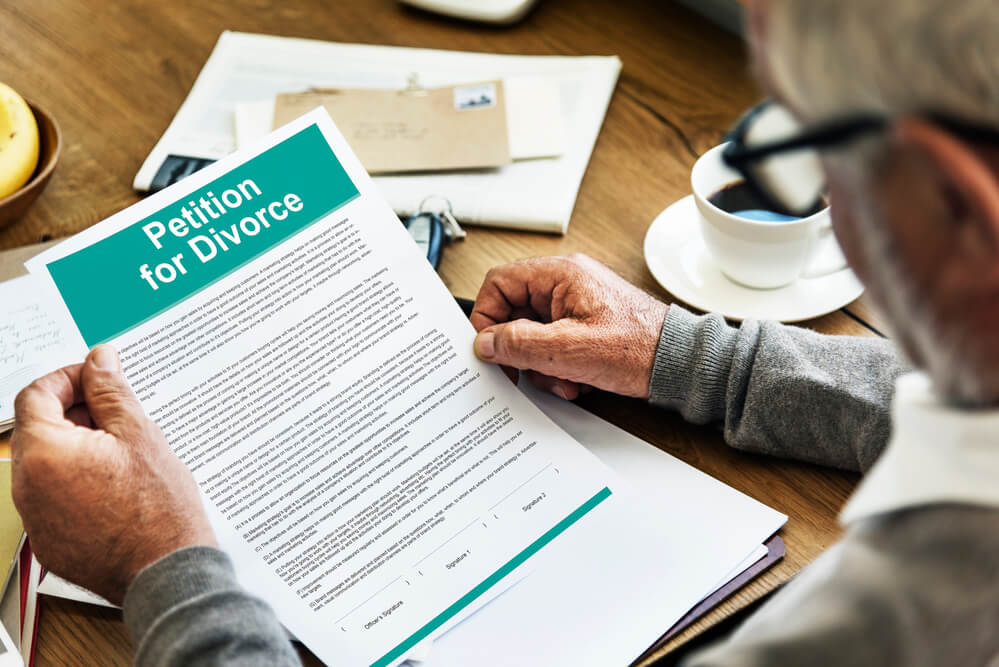This article explains the process and particulars of Florida Divorce Mediation.
Fortunately, the majority of divorce cases are resolved between spouses and lawyers before a divorce court judge makes any major decisions. One of the most common ways for such a resolution is through a process called Mediation, which usually occurs soon after spouses exchange financial information.
This is usually two to three months after a divorce case is filed, but can be earlier, and even before the lawsuit is filed, if both spouses are motivated to settle and have a solid understanding of the marital finances.
The Florida Divorce Mediation itself is an informal out of court meeting that will usually take place at the office of one of the spouse’s lawyers or at the Mediator’s office.
Typically, each spouse will be in a separate office or conference room with their lawyer, and a person called the “Mediator” will go between each room to learn each spouse’s settlement positions, and then help facilitate the negotiation of a final settlement of all or some of the issues involved with the divorce.
What is said, offered, or done in a Florida Divorce Mediation is nearly always confidential. This usually means that nobody can be required to testify in court about what settlement offers were made, or what facts were discussed in a Florida Divorce Mediation.
The idea behind keeping your Florida Divorce Mediation confidential is to create an environment where spouses are encouraged to negotiate and freely discuss issues in order to facilitate a settlement.
In many instances, if spouses reach an agreement as to the settlement terms in a Florida Divorce Mediation, a formal settlement offer will be prepared on the spot for each spouse to review and sign before leaving the Mediation.
Mediation in Florida
Many of the best lawyers will go to the Mediation with a draft settlement agreement already prepared reflecting their client’s desired settlement to allow the document to be quickly signed when an agreement is reached.
Most successful mediation in Florida will take two to six hours to complete, although it is not unheard of for Mediations to take all day long or expand into multiple days when the case calls for the resolution of complex issues.
That said, a Mediation can be done almost immediately after it begins, if neither spouse is agreeable to settling any issue. This is because there is no requirement for spouses to do anything more during a Florida Divorce Mediation, besides showing up, and at least briefly, attempting to negotiate in good faith.
Nobody can be forced to do anything else during a Florida Divorce Mediation. If you do not want to settle based on the offers discussed during a Florida Divorce Mediation, you do not have to settle.
Most of the best Mediators are divorce lawyers themselves, or are least are familiar with divorce laws, the divorce process, and the divorce judge who has been assigned to the case.
Typically, Mediators charge by the hour, and fees commonly paid for Mediators in South Florida where I practice will range between $175-500 per hour. It is customary for the spouses to split the payment of the Mediator’s fee, but this can be negotiated, and if there is a major income disparity, the spouse with the higher income will usually foot the bill.
Although the cost of paying a lawyer and at least half of the Mediator’s fee can seem expensive, Mediation is usually the most efficient way to resolve a case quickly.
In most instances, the negotiation of settlement agreement terms between two busy lawyers (who have to get their client’s approval before submitting each subsequent draft of a settlement agreement) can take weeks or months to complete, and ends up costing more money than it would to just “sit down and knock things out” at a Mediation.
Florida Divorce Mediation works; plain and simple. Judges know this too. As a result, many divorce court judges and local courts have adopted rules that spouses are required to attend at least one Mediation session before scheduling a court hearing on major issues.

Many judges think that if families are forced to go to Mediation they may not have a need to pay lawyers to go to court. This philosophy makes sense, but the “no Mediation, no court hearing” rule sometimes prompts people with bad intentions to either (1) delay Mediation to keep someone from getting a court hearing or (2) to force Mediation before enough information has been exchanged to have productive and informed settlement negotiations for purposes of trying to speed up getting into court.
My view is that, barring emergencies or conflict with litigation strategy, a Florida Divorce Mediation should happen as soon as possible. But only after spouses have exchanged the information that allows them to negotiate in good faith and with an understanding of the marital finances to at least allow the lawyers to have a reasonable degree of certainty as to how a judge might decide the case.
Also, it should go without saying that you should plan to meet with your attorney well in advance of the Mediation to discuss what type of settlement makes sense, and to get a meeting of the minds with your lawyer on what your bottom line acceptable settlement represents. This will allow the lawyer to plan and implement a mediation strategy designed to obtain your desired result.
Some people confuse Florida Divorce Mediation with Arbitration. Arbitration is considered a form of “alternative dispute resolution” that allows people to avoid the court system.
However, Arbitration vastly differs from Mediation as it is essentially nothing more than a trial in front of a private judge, or a panel of private judges, who then issue a binding decision that, unlike judge or jury decisions, can rarely be appealed.
Arbitration does not involve any negotiations, and unlike Mediation, involves decisions being made by professional arbitrators (these are basically private judges) instead of the spouses.
Although some people elect to use Arbitration to speed up the resolution of their case, the use of Arbitration in family court proceedings is rare and usually cannot be used to decide child custody issues.
- Review this with one of our attorenys- Schedule a Conversation
- Call today to schedule a time to talk to an attorney (561-286-8275)



